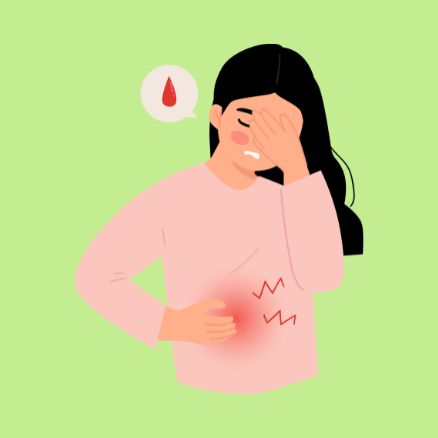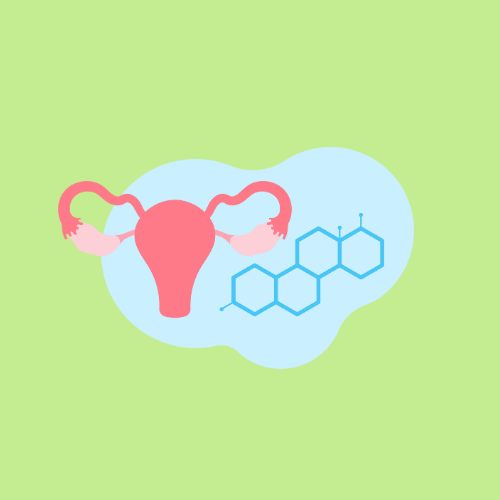Yes, all credit cards are secured by Shopify, Paypal, Amazon, Google, Meta or Apple.
GENERAL

What does MenstrEaze do?
MenstrEaze, a brand developed by Innovo Health Technologies and based in Silicon Valley, is at the forefront of FemTech, dedicated to enhancing the menstrual experience for women.
Our personalized care programs are tailored to meet the unique needs of each individual, offering a variety of supplements and comfort solutions.
These are thoughtfully curated into bundles that cater to different age groups and professions, ensuring that every woman receives the most appropriate and effective support for her menstrual health.
What is the uniqueness of MenstrEaze?
Where are MenstrEaze supplements formulated and manufactured?
Are MenstrEaze supplements FDA approved?
I forgot to take my MenstrEaze supplements. Will they still work?
Are MenstrEaze supplements any side effects?
MenstrEaze supplements are formulated with ingredients that have been both time-tested and studied by science. Past research indicates these ingredients are highly effective at alleviating symptoms of PMS, cramps, and more, with a low risk of side effects. However, we always recommend consulting with your physician before starting any new supplement regimen.
Can I take MenstrEaze supplements if I am under the age of 18, trying to conceive, pregnant, or currently taking medication or have a medical condition?
Understanding Proposition 65 and Our Supplement Labels
What is Proposition 65?
Proposition 65, or the Safe Drinking Water and Toxic Enforcement Act of 1986, mandates that California businesses inform residents about significant exposures to chemicals that could cause cancer, birth defects, or other reproductive harm. This law empowers consumers to make informed decisions about their exposures to these chemicals.
Defining Proposition 65's Role
Prop 65 has become a pivotal law in addressing potential risks associated with chemicals. It's crucial to understand that a Prop 65 warning does not imply a definitive risk of cancer, birth defects, or reproductive harm. Instead, the law operates under a "no observable effect level" (NOEL) which determines how much of each chemical can be present in a daily serving without requiring a warning. This threshold is set conservatively, aiming to prevent any harm by allowing 1,000 times less than the amount shown to have no effects in humans or animals.
For example, in the case of listed reproductive toxicants, the warning threshold is 1000 times lower than the level found to cause no reproductive harm. In other words, if animal studies predict that a human could eat up to 1000 grams per day of a substance without any reproductive effect, Prop 65 would be a require a warning on a food that contains 1 gram or more of the substance in a daily serving. This is further illustrated in the figure below.

American Herbal Products Association: California Prop 65 FAQ
With respect to lead, the Canadian government indicates that since 2004, the most significant dietary sources are beverages (including beer, wine, coffee, tea, and sodas), cereal-based foods, and vegetables. The U.S. Food and Drug Administration provides information about the content of lead and other contaminants in various foods in its Total Diet Study database. The chart below presents information about the average lead levels in various foods from FDA's Total Diet Survey during 2005-2011 as compared to the Prop 65 trigger level for reproductive harm.

American Herbal Products Association: California Prop 65 FAQ
How Proposition 65 Safety Standards Are Determined
Prop 65 standards are notably stringent, requiring warnings for substances where the exposure could result in no more than one excess case of cancer in 1 million individuals over a 70-year lifespan. This precautionary approach has prompted debate among entities like the American Cancer Society and various scientific experts who argue that the criteria for adding chemicals to the list may be overly conservative.
Why Our Supplements Carry a Proposition 65 Warning
Our supplements contain essential minerals and vitamins naturally sourced from the earth, such as magnesium and calcium. Despite rigorous purification processes, trace elements like lead, naturally present in the environment, might remain. Under Prop 65, warnings are mandated for even minute levels of these elements, which are significantly lower than federal safety thresholds.
Our Commitment to Quality
Unlike some companies that might reduce the nutrient content in their products to circumvent Prop 65 warnings, we prioritize your health and well-being. We adhere to California's stringent labeling requirements to maintain the quality and effectiveness of our supplements without compromising their health benefits.
Safety of Products with Proposition 65 Warnings
Yes, our products with Proposition 65 warnings are safe. The presence of a warning label does not imply violation of safety standards. The criteria for these warnings are far stricter than those set by federal agencies like the FDA, ensuring our products are not only compliant but also maintain high safety standards.
How Does Proposition 65 Affect You?
A Proposition 65 warning on a product serves as a precaution, informing you of the potential presence of listed chemicals, though these are often in amounts substantially lower than what is considered harmful by federal standards.
The Prevalence of Proposition 65 Warnings
With ongoing research and reevaluation of chemicals, Proposition 65 warnings have become more common across a range of products nationwide, reflecting a growing awareness and caution regarding chemical exposures.
Examples of Foods Labeled Under Proposition 65
Proposition 65 warnings may appear on various foods, including:
- Seafood: High mercury levels in certain fish.
- Leafy Greens and Vegetables: Potential absorption of lead and cadmium from soil.
- Root Vegetables: Susceptibility to absorb soil contaminants like heavy metals.
- Rice and Rice-Based Products: Tendency to absorb arsenic from soil and water.
- Processed Foods: Formation of acrylamide during high-temperature cooking.
- Canned Goods: Use of BPA in can linings.
Are Foods with Proposition 65 Warnings Safe to Eat?
Yes. The warnings aim to inform consumers rather than to suggest inherent unsafety. The levels requiring warnings are much lower than federal safety guidelines, allowing these foods to be part of a balanced diet.
Conclusion
Proposition 65 warnings foster transparency and informed choices, enhancing consumer protection without necessarily indicating direct risk. At MenstrEaze, we are committed to delivering high-quality, safe products that meet rigorous standards. This FAQ is designed to address any concerns you may have regarding Proposition 65 and the safety of our products, ensuring you remain well-informed about your choices.
References
- American Herbal Products Association: California Prop 65 FAQ
- State of California’s Office of Environmental Health Hazard Assessment (OEHHA)
- U.S. Agency for Toxic Substances and Disease Registry
- U.S. Food and Drug Administration recommendations regarding mercury in seafood
- U.S. Environmental Protection Agency information regarding mercury and fish
- State of California recommendations regarding chemicals in fish
- EPA data on maximum contaminant levels in drinking water
- Study on the cancer-causing potential of chlorinated water and chlorination by-products
SHIPPING/RETURNS

Where do you ship?
How much does shipping cost?
How do I track my package?
Is my credit card information secure?

HOT QUESTIONS ABOUT MENSTRUAL CRAMPS
Regarding food, medications, and other common myths about menstrual cramps
Collapsible content
What is the best medicine for period cramps?
Nonsteroidal anti-inflammatory drugs (NSAIDs) such as ibuprofen and naproxen are frequently recommended for the management of period cramps due to their effectiveness in reducing the production of prostaglandins. Prostaglandins are chemicals that play a key role in triggering muscle contractions and pain, which are common symptoms during menstrual periods. By inhibiting the enzyme responsible for prostaglandin production, NSAIDs can effectively alleviate these symptoms.
However, like all medications, NSAIDs come with potential side effects, which can vary in severity and occurrence among individuals. The most common side effects associated with NSAIDs include:
- Gastrointestinal issues: These can range from mild discomfort, such as nausea and indigestion, to more serious conditions like peptic ulcers and gastrointestinal bleeding. The risk is higher with long-term use or at higher doses.
- Cardiovascular risks: Long-term use of some NSAIDs has been linked to an increased risk of heart attack and stroke. The risk is higher among individuals with existing cardiovascular disease or risk factors.
- Kidney function: NSAIDs can affect renal function by altering blood flow to the kidneys, which can lead to kidney damage over time, particularly in individuals with pre-existing kidney issues or those who use NSAIDs regularly.
- Allergic reactions: Some individuals may experience allergic reactions to NSAIDs, which can range from mild skin rashes to more severe reactions such as anaphylaxis, especially in those with known allergies to aspirin or other NSAIDs.
- Increased blood pressure: NSAIDs can cause an elevation in blood pressure in some individuals, necessitating monitoring, especially in those with hypertension.
- Liver damage: Although less common, long-term use of NSAIDs can lead to liver damage. Individuals with pre-existing liver conditions should use NSAIDs with caution.
- Effects on pregnancy: NSAIDs should be used with caution during pregnancy, especially in the later stages, as they can affect fetal circulation and potentially lead to complications.
For more remedy/OTC comparisons, read our blogs:
What is Midol Complete?
Midol Complete is an over-the-counter medication formulated to provide relief from symptoms associated with menstrual periods, such as cramps, bloating, water-weight gain, and headaches. It contains a combination of active ingredients, each serving a specific purpose in alleviating menstrual discomfort:
- Acetaminophen: Acts as a pain reliever and fever reducer.
- Caffeine: Included as a diuretic to help reduce bloating and water retention, and it may also help increase the effectiveness of pain relief.
- Pyrilamine Maleate: An antihistamine that can also work to alleviate water retention.
Midol Complete is designed for short-term use during your menstrual period and is intended to address multiple symptoms with one product. However, it's important to follow the usage instructions on the package and be mindful of the caffeine content, especially if you are sensitive to caffeine or have certain medical conditions.
Always consult with a healthcare provider if you have concerns about using Midol Complete, especially if you are taking other medications or have health conditions that might be affected by its ingredients.
For more remedy/OTC comparisons, read our blogs:
Does Tylenol Help With Period Cramps? A Honest Answer
Tylenol Can Provide Relief for Menstrual Cramps, But May Not Be the Most Effective Option for Everyone
Yes, Tylenol (acetaminophen) can help alleviate the pain associated with menstrual cramps.It is a widely used over-the-counter pain reliever that can be effective for mild to moderate discomfort. However, for many individuals, it may not be the most effective choice compared to other readily available medications.
The pain from menstrual cramps is primarily caused by hormone-like substances called prostaglandins, which trigger uterine contractions and inflammation.While Tylenol works by elevating the body's overall pain threshold, it does not directly target the production of these prostaglandins.
Tylenol vs. NSAIDs for Menstrual Pain
Non-steroidal anti-inflammatory drugs (NSAIDs) are often recommended as the first-line treatment for menstrual cramps.This class of medication includes ibuprofen (Advil, Motrin) and naproxen (Aleve).NSAIDs are particularly effective for period pain because they work by reducing the production of prostaglandins, thereby addressing the root cause of the cramping and inflammation.
For this reason, many individuals find that NSAIDs provide more significant relief from menstrual cramps than Tylenol. However, Tylenol remains a valuable alternative for those who cannot take NSAIDs due to certain health conditions, such as:
- Stomach ulcers or a history of gastrointestinal bleeding
- Kidney disease
- Allergies to NSAIDs
- Use of blood-thinning medications
Recommended Dosage and Safety Precautions
When taking Tylenol for menstrual cramps, it is crucial to follow the dosage instructions on the product label. For adults, the general recommendation for Extra Strength Tylenol (500 mg of acetaminophen per caplet) is to take two caplets every six hours as needed.It is important not to exceed the maximum daily dose of 4,000 mg of acetaminophen, as doing so can lead to severe liver damage. Be mindful of other medications you may be taking that also contain acetaminophen to avoid accidental overdose.
Recommendations from Health Organizations
Many health organizations, including the American College of Obstetricians and Gynecologists (ACOG), typically suggest starting with NSAIDs for the management of menstrual cramps due to their targeted mechanism of action. However, they also recognize acetaminophen as a viable option for pain relief.
In conclusion, while Tylenol can certainly help to reduce the discomfort of menstrual cramps, NSAIDs are often more effective for many people because they directly target the underlying cause of the pain. If you find that Tylenol is not providing adequate relief, or if you are unsure which medication is right for you, it is always best to consult with a healthcare provider.
Does chocolate help cramps?
The idea that chocolate can help alleviate menstrual cramps is a popular one, and while it's not a cure-all, there are several reasons why consuming chocolate might offer some relief during menstruation.
Potential Benefits of Chocolate for Menstrual Cramps
- Magnesium Content: Dark chocolate is a good source of magnesium, a mineral that has been studied for its potential to relieve cramps. Magnesium may help relax muscles and reduce the severity of cramping.
- Mood Boosting: Chocolate is known to stimulate the release of endorphins, the body's natural "feel-good" chemicals, which can improve mood and reduce the perception of pain. Additionally, chocolate contains serotonin, a neurotransmitter that can act as a mild antidepressant, which might be particularly beneficial given the mood swings associated with the menstrual cycle.
- Anti-inflammatory Properties: High-quality dark chocolate (with a high cocoa content) contains antioxidants and compounds that have anti-inflammatory effects. Since inflammation can contribute to the discomfort of menstrual cramps, consuming dark chocolate in moderation might offer some relief.
Considerations
- Type of Chocolate Matters: The potential benefits are more likely to come from dark chocolate with a high percentage of cocoa (70% or higher) due to its higher magnesium content and lower sugar levels compared to milk chocolate.
- Moderation is Key: While chocolate can offer some benefits, it's also high in calories and fat. Consuming it in moderation is essential to avoid negative effects on health, such as weight gain.
- Individual Responses Vary: People react differently to various foods, and while some might find relief in eating chocolate, others might not notice any change in their symptoms.
Summary
Although chocolate, especially dark chocolate, contains components that could theoretically offer relief from menstrual cramps, it's important to remember that it is not a substitute for other effective treatments like NSAIDs, heat therapy, or dietary adjustments.
Consuming a balanced diet, staying hydrated, and maintaining a healthy lifestyle are crucial for managing menstrual symptoms. If menstrual cramps are severe or debilitating, consulting with a healthcare provider is recommended to rule out underlying conditions and explore targeted treatment options.
Please refer to our health library's article titled 'Chocolate and Menstrual Cramps: Friend or Foe?' for more detailed information and references.
Can I eat ice cream on my period?
For many, the urge to reach for a pint of ice cream during their period is a familiar one. But is this a helpful craving to indulge or one that could potentially worsen symptoms? The answer, it turns out, is not a simple yes or no. The impact of ice cream on your period depends on its components—dairy, sugar, and fat—and your individual body.
The Dairy Debate: A Double-Edged Sword
Ice cream's primary ingredient, dairy, presents a conflicting picture when it comes to menstrual health. Some research suggests that the A1 casein protein found in most cow's milk can be inflammatory for certain individuals, potentially exacerbating cramps and bloating.If you find that dairy products often leave you feeling gassy or bloated, you might be more sensitive to this protein. For these individuals, A2 milk products, which lack the A1 casein, or dairy-free ice cream alternatives might be a better choice.
On the other hand, dairy is a rich source of calcium and vitamin D, both of which have been shown to be beneficial for alleviating premenstrual syndrome (PMS) and menstrual cramps.Studies indicate that adequate intake of these nutrients can help reduce the severity of symptoms.
Sugar and Fat: The Not-So-Sweet Side
The high sugar and fat content in most ice creams is less ambiguous in its effects. Consuming large amounts of sugar can lead to fluctuations in blood sugar levels, which can contribute to mood swings and irritability. Furthermore, a diet high in sugar and unhealthy fats can increase inflammation throughout the body, potentially making menstrual cramps more painful.
The Cold Myth: Temperature's True Impact
A common belief, particularly in some cultures, is that consuming cold foods and drinks like ice cream during your period can worsen cramps. However, there is no scientific evidence to support this claim. The digestive system is separate from the reproductive system, and the temperature of the food you eat does not directly affect uterine contractions. That said, some individuals may have a personal sensitivity to cold foods, and if you notice a personal correlation between cold foods and increased discomfort, it's reasonable to avoid them.
Finding a Balance: Moderation and Healthy Alternatives
Ultimately, whether or not to eat ice cream on your period is a personal choice. Listening to your body is key. If you find that a small serving of ice cream provides comfort and doesn't worsen your symptoms, there's no need to completely deprive yourself.
Here are some tips for indulging your cravings in a more balanced way:
- Practice Portion Control: Instead of eating directly from the carton, scoop a small serving into a bowl. Savor it slowly and mindfully.
- Pair it Wisely: If you're going to have ice cream, consider having it after a nutritious meal rich in fiber and protein. This can help to stabilize your blood sugar levels.
- Consider Healthier Swaps: To satisfy your sweet tooth without the potential downsides of traditional ice cream, you could try:
- "Nice" Cream: Blend frozen bananas with a splash of milk or a dairy-free alternative for a creamy, naturally sweet treat.
- Greek Yogurt with Berries:Greek yogurt is high in protein and calcium, and berries provide natural sweetness and antioxidants.
- A Piece of Dark Chocolate:High-quality dark chocolate (70% cocoa or higher) is a good source of magnesium, which can help to ease cramps.
- A Warm, Comforting Drink: A mug of herbal tea, like chamomile or ginger tea, can be soothing for cramps and help with relaxation.
In conclusion, while the dairy in ice cream could be problematic for some, and the high sugar and fat content is generally not recommended in large quantities during your period, the idea that its cold temperature will worsen cramps is largely a myth. Pay attention to how your body reacts, and if you choose to enjoy some ice cream, do so in moderation and consider healthier alternatives to satisfy your cravings.
Can I drink soda on my period?
You can drink soda during your period, but it might not be the best choice if you're looking to manage menstrual symptoms effectively. While having a soda occasionally is unlikely to cause significant harm, there are a few reasons why you might want to limit your intake, especially during menstruation:
Caffeine
Many sodas contain caffeine, which can contribute to dehydration and may worsen symptoms like bloating and breast tenderness. Caffeine can also disrupt sleep patterns, making it harder to get the rest needed during your period.
Sugar
Sodas are high in sugar, which can lead to spikes in blood sugar levels followed by crashes. This can affect your energy levels and mood, potentially exacerbating feelings of fatigue and irritability often associated with PMS and menstruation.
Bloating and Gas
The carbonation in sodas can cause bloating and gas, adding to the discomfort of menstrual bloating and cramps.
Alternatives to Soda During Your Period
- Water: The best choice for staying hydrated. It can help with bloating and overall fluid balance.
- Herbal Teas: Can be soothing and might offer benefits for menstrual symptoms. For example, ginger tea can help with nausea, and chamomile tea might reduce cramps and improve sleep.
- Fruit Infused Water: A flavorful and healthy way to increase your water intake without added sugars.
- Decaffeinated Beverages: If you're looking to reduce caffeine intake, opting for decaffeinated versions of your favorite drinks can be a good alternative.
While it's okay to treat yourself to a soda if you're craving it, being mindful of your overall consumption and considering how certain beverages might affect your menstrual symptoms can help you make choices that support your comfort and well-being during your period. For more details, read our blogs in Health Library.
Please use our advanced nutrient analyzer to evaluate food components. Harness this modern tool to make informed dietary choices tailored to your cycle.
What are the best comfort foods for periods?
When your period arrives, so too can a powerful craving for all things comforting. While reaching for greasy, sugary, or salty fare is a common impulse, the best comfort foods for your period are those that not only soothe your soul but also ease your symptoms. The right foods can help combat cramps, reduce bloating, fight fatigue, and even boost your mood. Here’s a guide to nourishing your body and finding true comfort during your cycle.
Foods That Fight Period Discomfort
Focusing on whole foods packed with specific nutrients can make a significant difference in how you feel.
To Soothe Cramps:
- Magnesium-Rich Foods: This essential mineral helps relax the uterine muscles, which can ease cramping.
- Find it in: Dark chocolate (70% cocoa or higher), avocados, nuts (especially almonds), seeds (like pumpkin and chia), leafy greens (spinach, kale), bananas, and legumes (beans, lentils).
- Omega-3 Fatty Acids: Known for their anti-inflammatory properties, omega-3s can help reduce the production of prostaglandins, the compounds that cause uterine contractions.
- Find it in: Fatty fish (salmon, mackerel, sardines), walnuts, flaxseeds, and chia seeds.
- Warm Teas: Certain herbal teas have anti-inflammatory and antispasmodic properties.
- Try:Ginger tea, chamomile tea, peppermint tea.
To Beat Bloating:
- Potassium-Rich Foods: This electrolyte helps counterbalance sodium and can help your body flush out excess water.
- Find it in: Bananas, sweet potatoes, avocados, tomatoes, and leafy greens.
- Hydrating Foods:Staying hydrated can actually help reduce water retention.
- Find it in: Watermelon, cucumber, celery, and oranges.
- Ginger: This powerhouse root is a well-known digestive aid that can help soothe an upset stomach and reduce bloating.
To Combat Fatigue:
- Iron-Rich Foods: You lose iron when you bleed, which can contribute to feelings of tiredness and low energy.
- Find it in: Lean red meat, poultry, fish, lentils, beans, tofu, spinach, kale, and fortified cereals.
- Vitamin C: This vitamin is crucial for helping your body absorb iron from plant-based sources.
- Find it in: Oranges, bell peppers, strawberries, broccoli, and lemons.
- Complex Carbohydrates: These provide a steady release of energy to prevent energy crashes.
- Find it in: Oats, brown rice, quinoa, and sweet potatoes.
To Boost Your Mood:
- Dark Chocolate:In addition to being rich in magnesium, dark chocolate can also boost serotonin, a feel-good neurotransmitter.
- Foods High in Vitamin B6: This vitamin is involved in the production of serotonin and may help with mood swings and irritability.
- Find it in: Bananas, chicken, potatoes, and oatmeal.
- Calcium-Rich Foods:Studies suggest that adequate calcium intake may help reduce mood changes and fatigue.
- Find it in: Yogurt, cheese, milk, kale, and fortified plant-based milks.
Foods to Limit
While no food is strictly "off-limits," some can exacerbate period symptoms. Consider reducing your intake of:
- Excess Salt: Can lead to water retention and bloating.
- High-Sugar Foods: Can cause blood sugar spikes and crashes, leading to mood swings and fatigue.
- Highly Processed Foods: Often high in sodium, sugar, and unhealthy fats that can increase inflammation.
- Excess Caffeine: Can contribute to anxiety and breast tenderness in some women.
- Alcohol: Can be dehydrating and may worsen mood swings and bloating.
- Fatty Meats: High in saturated fats, which can be pro-inflammatory.
Comforting & Healthy Swaps for Common Cravings
|
Instead of Craving This... |
Try This Healthy & Comforting Swap! |
|
Milk Chocolate or Candy |
A few squares of dark chocolate (70% or higher) for a magnesium and mood boost. A bowl of fresh berries with a dollop of yogurt for natural sweetness and calcium. |
|
Salty Chips or Pretzels |
A handful of unsalted nuts or seeds for healthy fats and magnesium. Popcorn (lightly salted) for a high-fiber snack. Hummus with veggie sticks (cucumber, bell peppers). |
|
Greasy Fast Food |
A baked sweet potato with a sprinkle of cinnamon. A hearty bowl of lentil soup. Salmon baked with herbs and lemon for a dose of omega-3s. |
|
Sugary Drinks |
A warm mug of herbal tea (ginger, chamomile). A smoothie made with spinach, banana, and almond milk. A glass of water infused with lemon and mint. |
How can I help my girlfriend with cramps?
When your girlfriend is dealing with menstrual cramps, it can be hard to know how to help. But your support can make a world of difference. Here’s a comprehensive guide on how you can provide comfort and relief, from practical help to emotional support.
Immediate Comfort Measures
When the pain is at its worst, these actions can provide immediate relief:
- Bring on the Heat: Applying heat to the lower abdomen or back is one of the most effective ways to soothe menstrual cramps.Heat helps to relax the uterine muscles and increase blood flow, which can ease pain.
- Actionable Tip: Prepare a hot water bottle, a microwaveable heating pad, or suggest a warm bath.You can even add a few drops of calming essential oils like lavender or chamomile to the bathwater for extra relaxation.
- Offer a Gentle Massage: A gentle massage on her lower abdomen, back, or even her feet can be incredibly comforting. Use slow, circular motions with light pressure.
- Actionable Tip: Ask her if she’d like a massage. You can use a carrier oil like coconut or jojoba, and consider adding a drop or two of an essential oil known for its calming properties.
- Brew a Soothing Drink: Certain herbal teas have properties that can help reduce muscle spasms and inflammation.
- Actionable Tip: Make her a warm cup of chamomile, ginger, or peppermint tea. The warmth of the mug and the soothing properties of the tea can be very comforting.
Practical Support and Care
Taking care of everyday tasks can lift a huge weight off her shoulders when she’s not feeling well.
- Provide Healthy Food and Hydration: Some foods can help alleviate cramp symptoms, while others can make them worse. Encourage foods rich in magnesium (dark chocolate, avocados, nuts), omega-3s (salmon, walnuts), and potassium (bananas). Staying hydrated is also key.
- Actionable Tip: Cook a comforting, healthy meal for her. Think a simple salmon dish with roasted vegetables, a hearty lentil soup, or a smoothie with banana and spinach. Keep a water bottle filled for her and offer to make her tea. It’s also helpful to have her favorite snacks on hand.
- Stock Up on Supplies: Make sure she has everything she needs so she doesn’t have to worry about running to the store.
- Actionable Tip: Keep a stock of her preferred over-the-counter pain relievers like ibuprofen (Advil, Motrin) or naproxen (Aleve), which are often more effective for cramps than acetaminophen (Tylenol) because they target inflammation. Also, have her favorite pads or tampons ready.
- Create a Cozy Environment: A comfortable and relaxing atmosphere can do wonders for her mood and pain levels.
- Actionable Tip: Dim the lights, put on her favorite calming music or a movie she loves, and make sure she has plenty of blankets and pillows to get comfortable on the couch or in bed.
Encouragement and Shared Activities
- Suggest Gentle Movement: While strenuous exercise might be the last thing on her mind, gentle movement can actually help relieve cramps by releasing endorphins, which are natural painkillers.
- Actionable Tip: Suggest a short, slow walk together, or find a gentle yoga or stretching routine for menstrual cramps online that you can do with her. The key is to be encouraging without being pushy.
- Offer a Distraction: Sometimes, taking her mind off the pain can be a powerful tool.
- Actionable Tip: Suggest watching a movie, playing a video game together, listening to a podcast, or simply having a quiet conversation about something unrelated to her period.
The Importance of Emotional Support
This is arguably the most crucial way you can help.
- Listen and Validate Her Feelings: Menstrual pain is real and can be debilitating. The most important thing you can do is listen to her and validate her experience. Avoid downplaying her pain or making jokes about it.
- Actionable Tip: Simply ask, "How are you feeling?" and listen to her answer. You can say things like, "That sounds really tough, I'm sorry you're in so much pain," or "What can I do to make you more comfortable right now?"
- Be Patient and Understanding:Hormonal fluctuations can affect her mood and energy levels. Be patient and understanding if she's more irritable or tired than usual.
- Ask What She Needs: Everyone experiences their period differently. The best way to know how to help is to ask her directly. She knows her body best and can tell you what she finds most comforting.
By offering a combination of practical help, physical comfort, and unwavering emotional support, you can be an incredible source of strength and comfort for your girlfriend when she's dealing with cramps. Your thoughtful actions will show her you care and that she doesn’t have to go through it alone.
How to stop cramps fast?
To quickly alleviate menstrual cramps, you can try several common strategies that offer relief:
- Use Over-the-Counter Pain Relievers: NSAIDs like ibuprofen (Advil, Motrin) or naproxen (Aleve) are effective in reducing the production of prostaglandins, relieving pain quickly. Follow the recommended dosages on the package.
- Apply Heat: A heating pad or hot water bottle placed on your lower abdomen can relax the muscles and ease cramps. A warm bath may also provide similar benefits.
- Stay Hydrated: Drinking water and staying hydrated can help reduce bloating, which sometimes exacerbates cramps. Warm beverages, like herbal teas, can also be soothing.
- Engage in Light Exercise: Gentle activities like walking or yoga can release endorphins, your body's natural painkillers, and might help ease cramps.
- Try Dietary Adjustments: Foods rich in omega-3 fatty acids, magnesium, and vitamin B-12 can help reduce cramp severity. Avoiding excessive salt, caffeine, and alcohol might also mitigate bloating and cramps.
- Practice Relaxation Techniques: Deep breathing exercises, meditation, or using relaxation apps can help reduce stress and potentially lessen the severity of cramps.
- Consider Supplements: Magnesium supplements or ginger capsules have been shown to help some people with cramps. Always consult with a healthcare provider before starting any new supplement.
- Massage: Gently massaging the lower abdomen in circular motions can increase blood flow and offer temporary relief from cramps.
- Try Acupressure: Applying pressure to specific points on the body, like the space between your thumb and index finger or just above the ankle, may help alleviate menstrual pain for some.
If your menstrual cramps are severe or don't improve with self-care measures, it's important to consult a healthcare provider to rule out conditions like endometriosis or fibroids that might require specific treatment.
For more remedy/OTC comparisons, read our blogs:

HOT QUESTIONS ABOUT HORMONE BALANCE
Regarding food, exercise, and other common myths about hormone regulation
Collapsible content
What herbs are good for hormone balance?
Several herbs have been traditionally used and researched for their potential to help balance hormones. Here's a look at some commonly recommended herbs for hormone balance:
- Chaste Tree Berry: Chaste Tree is known for its ability to regulate the menstrual cycle and alleviate symptoms of PMS and menopause. It's thought to act on the pituitary gland to increase luteinizing hormone production and inhibit the release of follicle-stimulating hormone, leading to a balance of estrogen and progesterone levels.
- Red Raspberry Leaf: Often used to support reproductive health, red raspberry leaf can help strengthen the uterine walls and may decrease menstrual bleeding. It's rich in vitamins and minerals, making it supportive of overall health as well.
- Milk Thistle: Known for its liver-supporting properties, milk thistle can help with the detoxification process, including the breakdown of excess hormones, particularly estrogen. A healthy liver function is crucial for maintaining hormonal balance.
- Spearmint Tea: Research suggests that drinking spearmint tea may help reduce levels of free testosterone and increase luteinizing hormone, follicle-stimulating hormone, and estradiol in women with PCOS, potentially aiding in hormone balance.
- Dong Quai (Angelica Sinensis): Often referred to as "female ginseng," Dong Quai is believed to help balance estrogen levels and is used to treat menstrual and menopausal symptoms. However, its effects need to be studied more thoroughly for conclusive evidence.
- Maca Root: An adaptogen, Maca root is said to help balance hormones and reduce symptoms of menopause, including hot flashes and interrupted sleep. It may also improve libido and fertility.
- Black Cohosh: Primarily used for menopausal symptoms such as hot flashes, mood swings, and sleep disturbances, black cohosh is believed to have estrogenic effects, although research is mixed on its effectiveness and mechanism of action.
- Ashwagandha: Another adaptogen, Ashwagandha, can help the body adapt to stress, which in turn can help regulate cortisol levels and influence other hormones indirectly. It's been studied for its potential to improve thyroid function, reduce anxiety and stress, and enhance fertility and libido in both men and women.
- Holy Basil (Tulsi): This herb can help manage stress levels, thereby potentially supporting adrenal health and hormone balance. Stress management is crucial for maintaining balanced cortisol levels, which affect other hormones.
- Licorice Root: Besides its potential for supporting adrenal function and thus influencing cortisol levels, licorice root can have phytoestrogenic properties. However, it should be used cautiously due to its effects on blood pressure and potential interaction with medications.
When considering herbs for hormone balance, it's crucial to consult with a healthcare provider, particularly if you have existing health conditions or are on medication, as herbs can have potent effects and interact with medications.
For more details, read our blogs in Health Library.
What are the best foods for hormone balance?
To support hormone balance, incorporating a variety of nutrient-rich foods into your diet can be beneficial. Foods that are particularly helpful include:
- Fatty Fish: Such as salmon, mackerel, and sardines, which are rich in omega-3 fatty acids and vitamin D, essential for stabilizing hunger hormones and improving female testosterone levels.
- Seeds: Flax, pumpkin, and sesame seeds contain lignans that can help normalize estrogen levels by removing excess estrogen and stimulating production when needed.
- Leafy Greens and Cruciferous Vegetables: Kale, spinach, broccoli, and cauliflower are packed with dietary fiber and nutrients that support hormone balance by helping to process and remove excess estrogen.
- Spearmint Tea: Particularly beneficial for those with PCOS, as it can help lower androgen levels.
- Quinoa and Chicken Breast: These are good sources of clean protein that can promote the secretion of satiety hormones and support hormonal balance.
Additionally, focusing on foods that regulate hormones, antioxidants, and clean proteins can provide the essential amino acids and nutrients needed for healthy hormonal functions. It's also suggested to include a variety of colorful vegetables, such as bell peppers and carrots, which are high in antioxidants that protect against free radical damage and support thyroid function.
Remember, individual dietary needs can vary, so it's always a good idea to consult with a healthcare provider or a nutritionist to tailor a diet plan that's right for you.
For more details, read our blogs in Health Library.
What are good hormone balancing snacks?
For hormone balancing, opt for snacks rich in fiber, healthy fats, and protein. Good choices include mixed nuts, seeds like pumpkin or flaxseed, Greek yogurt with berries, apple slices with almond butter, and hummus with vegetable sticks. These snacks support stable blood sugar levels and provide essential nutrients for hormonal health.
For more details, read our blogs in Health Library.
What constitutes a good hormone balancing diet?
A good hormone balancing diet typically includes foods rich in omega-3 fatty acids, fiber, antioxidants, and phytonutrients. Focus on incorporating fatty fish, leafy greens, cruciferous vegetables, nuts, seeds, whole grains, and fermented foods. Limiting sugar, processed foods, and excessive caffeine can also support hormonal health. Always consider consulting a healthcare provider or a nutritionist for personalized dietary advice.
For more details, read our blogs in Health Library.
What probiotics are good for hormone balance?
For hormone balance, probiotics like Lactobacillus acidophilus and Bifidobacterium species are considered beneficial. These strains can improve gut health, which in turn may help regulate hormones such as estrogen and cortisol. Consuming probiotic-rich foods or supplements might support this balance, but it's essential to consult a healthcare provider for personalized advice.
For more details, read our blogs:



